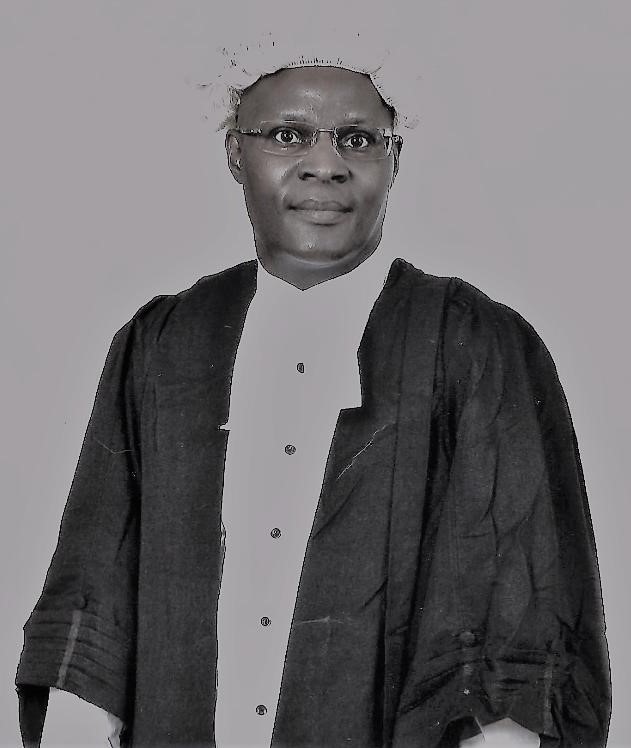By Caxton Peter Kasozi-Batende, caxton26@yahoo.co.uk
There will be a host of new ideas galloping around Uganda’s lawbook, seeking admission but each must first win its spurs. The judge’s function is known to preserve the innocents but we live in a time of existence of some judges in the judiciary service who are not neutral players but instead are politically parasitic. This does not mean that no judges are capable of being politically unparasitic, the concern is that they are manipulatable by the state or by the bigwigs in the state, or by the organs of the state to justify remanding incomunicado an accused or sentence an accused on what is into light confession acquired through duress or threats to confess to falsely implicate an accused to uttering in court fabricated information. But the judges are conscious of their limitations in making rulings.
Developed states introduced the ideology of protecting a witness’s identity from being disclosed to the defendant. Withholding the name and address of persons giving evidence against the defendant. The court may also decide that the defendant cannot be present in the courtroom while the protected person is giving evidence. The prosecution alleges that people who were asked to help the police were assured by the latter that their identities will never be disclosed.
The idealogy became extended to the International Criminal Court (ICC), the International Criminal Tribunal for Rwanda (ICTR), in the Special Court for Sierra Leone (SCSL), in South Africa and Uganda.
The challenge in the African states is that of the integrity of the criminal justice system. It is very easy for a party having a personal vendetta to allege fabrications against someone, the police use bargains or bribery for fabrications to be the information that the courts rely on. Police induce confession through torturing until the tortured agrees to cooperate with the police to say to the court what is been told to say. In other scenarios, the state’s organs exert pressure on the police or judge to rule the case in favour of the state’s prosecution team. It is not news that there is corruption among police officers and police influence over the judiciary in the administration of justice.
Witness anonymity is an incidence where the prosecution seeks the court to order that the identity of the witness is not disclosed in or in connection with the proceedings. This may involve the withholding of the witness’s name and that the witness may use a pseudonym, may be screened, may have their voice modified or may not be asked questions which might identify them.
The rationale is to protect informants from finding themselves or their families in danger if their identities were disclosed, or to protect the sources through which the information was obtained, so that not to jeopardize future operations of information gathering, the source would dry up, in the situation of undercover police persons.
The basis upon which the witness anonymity aspect was proposed is that the prosecution has a vital role to play in delivering fair trials. In developed countries where that principle is used, the police abandon continuing with the case, once the police detect that the likelihood exists for the allegations to be untrue. Unlike in African countries, the police itself foremost is behind the making up of the case against the arrested.
I am mind-hurt seeing the things I talked about in conversation praising the NRM’s capture of power eroded away. Uganda has slipped back into what were the days during Idi Amin’s and Milton Obote’s time in power. An ordinary person does not feel secure anymore.
In summary, a defendant in a criminal trial is entitled to know the identity of witnesses who seek to incriminate him. To be able to exhume previous convictions /“bad character” of the anonymous witness as one example. Exhume previous contradictory assertions by the witness in other cases as another example. Evidence of contact between the anonymous witness and the accused is another aspect worth, not overlooking, this could bed police officers who have played a significant part in the investigation. The circumstances in which the anonymous witness came to the prosecution’s notice is another aspect worth unearthing.
In conclusion, it is of the essence for Uganda’s Constitutional court to arrive at a position Uganda should not simply copy to its legal book the principle of anonymity-witness used in the developed states. The courts in Uganda need to rule that “an anonymity order should be regarded as the special measure of last practicable resort”. Otherwise, a list of miscarriages of justice would floodgate. The concern of credibility of the accuracy of the information needs to be at the foremind of the constitutional court and Supreme Court. The cornerstone must be giving a fair hearing as a right in the interest of justice, to the satisfaction of the court in the course of providing a defendant with a fair trial.
Uganda is having persons who get to know about what is done in countries where the doctrines of separation of powers, rule of law and democracy, are 98% clearly noticeable, in developed countries a Head of State is interrogated by the police. You cannot bribe a policeman in those countries. You can recall Ex-Prime Italy’s Prime Minister Bori Silvio Berlusconi’s bribery and sex scandal trial, France’s ex-president Nicolas Sarkozy’s corruption scandal trial, Benjamin Netanyahu Ex- Isreal’s Prime Minister trial, Boris Johson Partygate scandal investigation and penalty fine by the police, Criminal probe against Donald Trump, Corruption probe against Ex-President Zuma and Bill Clinton about the Monica Lewinsky sex scandal.
In conclusion, in such countries, the state, a state’s organ nor the police or member of the public can easily be pinned on an innocent person. Because allegations are subject to rigorous scrutiny by the police and the Crown Prosecution Service, as well as the judges enjoy the freedom of independence. The dynamics in countries whose criminal legal process system is less influenced by corruption are different from countries where anyone can walk to the state prosecutor and the judge and impose an influence on the way a case should be handled.
The writer is a legal practitioner in the United Kingdom.
Caxton Peter Kasozi-Batende
caxton26@yahoo.co.uk
WhatsApp: +2567550142644








